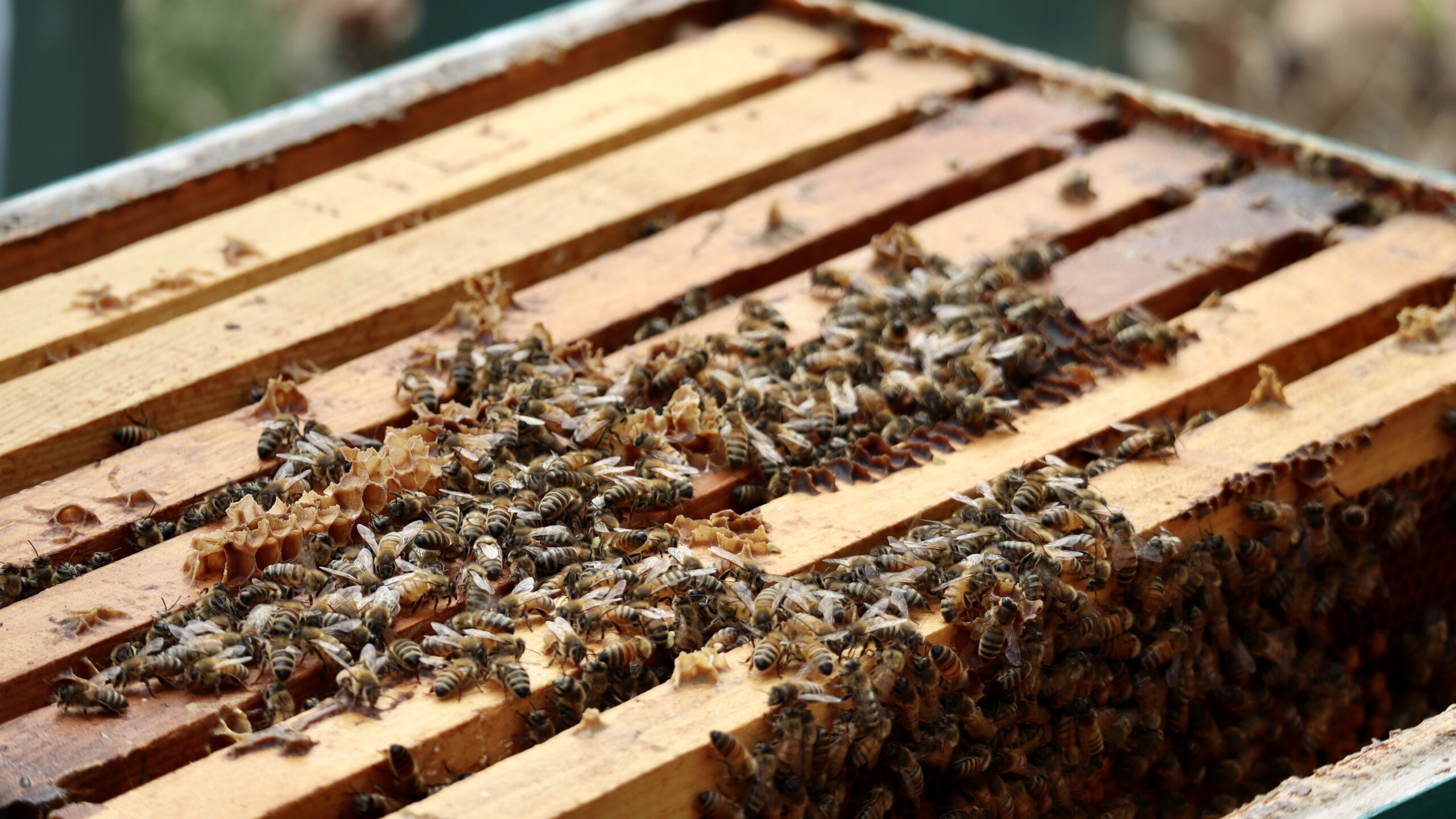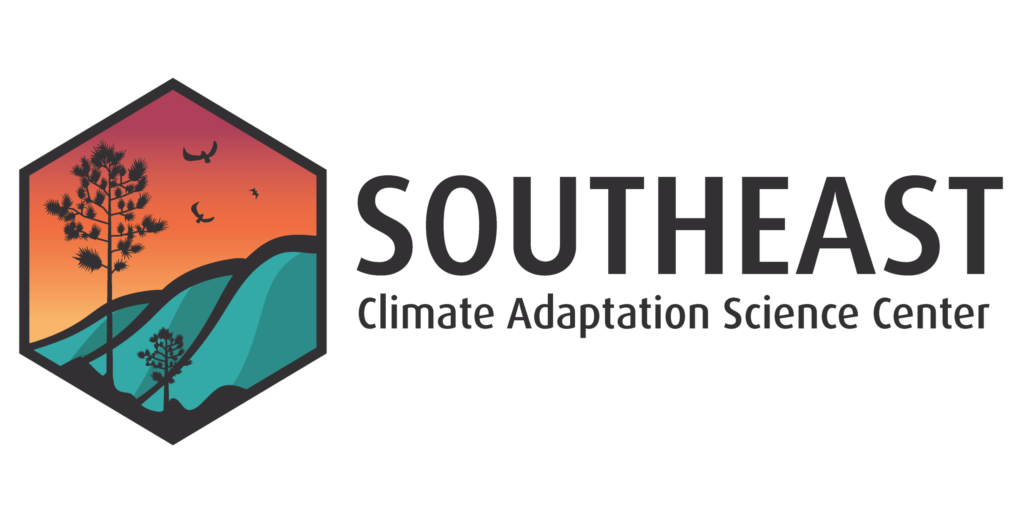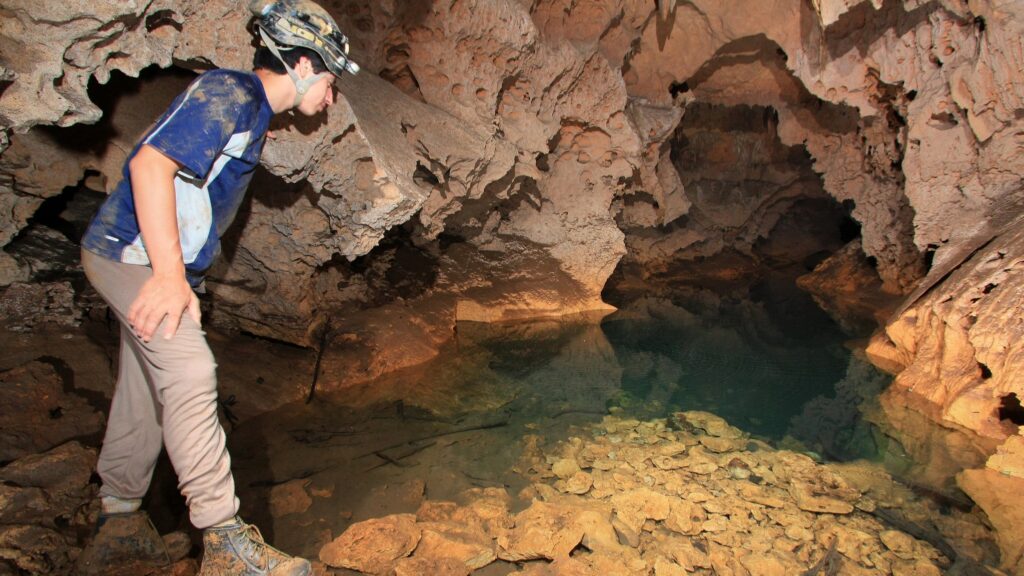March 2023 Newsletter


March 2023 Newsletter
Welcome to the Southeast Climate Adaptation Science Center’s March 2023 Newsletter.
For news and upcoming events related to the Southeast Climate Adaptation Science Center, subscribe to our monthly newsletter
SE CASC News | Resources | Publications | Tribal News | Partner News | Webinars | Events | Opportunities

Southeast Climate Adaptation Science Center News
Join us TODAY for virtual SE CASC Science Seminar, Climate Support for Species Status Assessments, presented by Dr. Catherine (Kasia) Nikiel, an ORISE/USGS Postdoctoral Fellow in Climate Impacts with SE CASC. March 16, 11AM ET. Learn more and register.
Our Global Change Fellows will host a Global Change Seminar, Communicating Risk in a Changing Climate, with Joseph Trujillo Falcon (NOAA/OU), Dr. Kenzie Krocak (OU), and Dr. Kim Klockow-McClain (NOAA) on April 12, 3:30PM ET. Register here.
The next virtual SE CASC Science Seminar will be presented by Joseph McIver (NCSU) on April 20, 11AM ET, on Sea Level Rise and Salinity Impacts on At-risk Native Freshwater Mussels and Their Habitats in Atlantic Coastal Rivers. Learn more and register.
If you missed the first seminar in the Spring Global Change Seminar Series, Inclusivity in the Outdoors, on Feb. 23, view a summary and recording.
Researcher Spotlight: Learn more about Global Change Fellows Sophia Rosenberg & Greivin Ulate.
SE CASC Climate Science Translation and Communications Fellow Kristen Fontana wrote about her experience at the February Caribbean Conservation Community of Practice meeting in St. Croix. Read it here.
SE CASC researchers from UF, Alex Baecher and Brett Scheffers were co-authors to “Experimental evaluation of how biological invasions and climate change interact to alter the vertical assembly of an amphibian community,” showing that climate change may exacerbate negative interactions between native and non-native species. Read a summary.
SE CASC Ecologist Adam Terando is co-author to, “Compact or Sprawling Cities: Has the Sparing‑Sharing Framework Yielded an Ecological Verdict,” along with Faculty Affiliates Elsa Youngsteadt (NCSU), Jennifer Costanza (USFS), and Jelena Vukomanovic (NCSU). Learn more.
2019-20 SE CASC Global Change Fellow Lise Montefiore is lead author to, “Vulnerability of Estuarine Systems in the Contiguous United States to Water Quality Change Under Future Climate and Land-Use,” co-authored by Faculty Affiliate Natalie Nelson (NCSU), Michelle Staudinger (NE CASC), and SE CASC Ecologist Adam Terando, which developed a framework to identify estuarine systems most at risk of water quality impacts due to climate and LULC changes. Read a summary.
Conservation Corridor: Should I stay or should I go? Climate fidelity in plants over 18,000 years
Project Spotlight
Accounting for Ecological Impacts of Climate Change in State Wildlife Action Plans: A Comparison of Model-Based and Index-Based Vulnerability Assessments

State wildlife agencies and their partners use State Wildlife Action Plans to coordinate and guide management activities aimed at protecting species. To succeed, management actions need to account for impacts of climate change on species today and in the future as climate change accelerates in coming decades. This project compares two methods of species assessments: modeling approaches used to simulate and understand how future climate change will impact species used by researchers and index-based scoring approaches to understand the risks to and vulnerability of species used by natural resource managers. Researchers will evaluate where the two methods agree and disagree as well as recommend how the two can be combined to arrive at consensus determinations about species vulnerability. The team will ultimately provide data resources to state wildlife agency staff across the region to support the upcoming 2025 revision of wildlife action plans. This project is led by PI Paul Armsworth, UT-Knoxville. Link to project page.
Resources
Global Surface Temperature Dataset: NOAA National Centers for Environmental Information released an update to the agency’s global surface temperature dataset. The new product adds 30 years to the historical record by tracking temperatures back to 1850 and has complete global coverage, including the Arctic. Learn more.
Nature-based Solutions Funding Database. The National Wildlife Federation created an interactive database for communities interested in pursuing federal funding and/or technical assistance for nature-based solutions. Learn more.
Ecosystem-based Adaptation Tools Navigator. The UN Environmental Program and its partners created this interactive database of tools and methods relevant to ecosystem-based adaptation. The Navigator aims to help practitioners, planners, decision-makers and researchers easily find and understand the tools and methods available to support their work. Learn more.
Coastal Hazards & Sea-Level Rise Asset Vulnerability Assessment Protocol. The National Park Service published this updated project description and methodology in collaboration with the Program for the Study of Developed Shorelines at Western Carolina University. The project evaluates the vulnerability of NPS buildings and transportation assets to sea-level rise, flooding, and shoreline changes. Learn more.
In the Media
Are Butterflies Wildlife? Depends Where You Live. | NY Times
Closing off Biscayne Bay with massive gates? New ideas to protect Miami from storms | Aol.
Why hurricanes feel like they’re getting more frequent | NPR
Meat, dairy and rice production will bust 1.5C climate target, shows study | The Guardian
Sharp cold blasts punctuate one of the warmest, wettest U.S. winters on record | Yale Climate Connections

Notable Publications
Long-term, large-scale experiment reveals the effects of seed limitation, climate, and anthropogenic disturbance on restoration of plant communities in a biodiversity hotspot
Management practices and climate variability often act to influence plant restoration by challenging plant establishment and persistence (survival). The authors conducted a long-term experimental study of longleaf pine savannas in the Southeast U.S. to understand the factors that influence and support plant recovery. They took into account multi-year variation in climate and management practices and found that seed additions, cool and wet climatic conditions, low tree density, and reduced litter depth promoted species establishment. They further found that established trees often persisted for 8 or more years. The authors conclude that knowledge of the impacts of climate change can be used to optimize the timing of restoration efforts and that management actions such as prescribed burns can boost plant establishment and persistence. Link to article.
The past, present, and future of coral reef growth in the Florida Keys.
Coral reefs are important coastal habitats that can protect against flood and storm damage, support fisheries, and economic activities like tourism. Researchers have found that the degradation of coral reefs is outpacing their growth (through carbonate production). Therefore, the authors wanted to know if coral reef management actions could re-balance growth-erosion rates. They looked at the environmental and ecological drivers of growth-erosion rates by comparing historical trends to current and projected rates of growth in 46 reefs along the Florida Keys. Researchers found that declines in reef-building corals (due to periods of thermal stress and disease outbreaks) have resulted in a regional decline in carbonate production making erosion the dominant process on Florida reefs. They further found that inshore ecosystems may provide refugia from thermal stress and that it may be possible, through management actions, to restore reef building corals and mitigate declines in reef growth. Future research should focus on climate impacts on restoration. Link to article.
Mangrove reforestation provides greater blue carbon benefit than afforestation for mitigating global climate change
Mangroves serve as important nature-based solutions to climate change but few studies have focused on the role that establishment location, past land tenure, or silvicultural action may have on their carbon sequestration potential. This study compared the blue carbon benefit between afforestation (establishing mangroves where not previously mangrove) and reforestation (reestablishing mangroves where they previously colonized). They analyzed measurements of carbon density taken at over 370 sites around the world and looked into the factors that could influence mangrove carbon accumulation. They found that reforestation had a greater carbon storage potential than afforestation. This result was attributed to favorable intertidal positioning, higher nitrogen availability, lower salinity, among other factors. Researchers conclude that mangrove reforestation is an extremely useful nature-based solution for mitigating climate change. Link to article.
Assessing impacts of climate change on selected foundation species and ecosystem services in the South-Central USA.
Climate change is known to alter ecosystem structure and functions, decrease biodiversity, and negatively impact species distribution. Few studies have focused on the altered ecological roles of foundation species (species that create locally stable environmental conditions and have a strong influence on ecosystem services) as a result of climate change, which can be important for understanding future impacts on ecosystem services at the regional scale. This paper conducted four ecoregion case studies across the South-Central U.S. including in Louisiana, New Mexico, Oklahoma, and Texas. They specifically looked at the impacts of climate change on foundation species and the consequences for ecosystem services. The authors found that in each ecoregion, foundation species have a profound impact on ecosystem structure and services, management decisions often produce adverse ecological consequences, and that climate change will impact the prevalence of foundation species among other findings. Link to article.
Using citizen science to determine if songbird nesting parameters fluctuate in synchrony.
Increased synchrony, or the degree of synchronization in the fluctuation of demographic parameters, could have serious implications for avian populations. Climate change is a main driver of synchrony which makes it even more important to determine which demographic parameters are synchronized and whether synchronizations occur between species. The authors used 21 years of citizen science nesting data on Eastern Bluebirds and Carolina Chickadees in the southeastern U.S. to see how nesting parameters respond to climate change and other environmental factors. For example if the nesting parameters of two populations of similar species become synchronized and are negatively impacted by environmental conditions, population growth rate and in turn population size could decline. They used data gathered by the Cornell Lab of Ornithology’s NestWatch Program and found no consistent patterns of synchrony across netting parameters between species or regions with some variation in hatching, hatchability, and fledging synchrony. The low variability and lack of synchrony suggest that these populations may be resilient to climate change. Link to article.

Tribal News
Visit USET Climate Change Headlines for updates on information regarding climate science events, funding opportunities, best practices, and highlights from across the USET region.
Applications for the virtual option have been extended until March 31 for the 11th Annual Rising Voices Center for Indigenous and Earth Sciences Workshop at the National Center for Atmospheric Research in Boulder, Colorado, May 31-June 2. Learn more.
Native Case Studies Featuring Climate Change. The Enduring Legacies Native Cases Initiative, by the Evergreen State College, develops culturally relevant curriculum and teaching resources in the form of case studies on key issues. Learn more.
The Network for Landscape Conservation announced the 2023 funding round of the Catalyst Fund. The goal of the fund is to make strategic investments in strengthening the collaborative capacity of place-based, community-grounded Landscape Conservation Partnerships. A portion of the fund is dedicated to supporting Indigenous leadership in landscape conservation and stewardship. They especially invite Partnerships that are led by Indigenous peoples, organizations, and communities to apply. Proposals are due April 21. Learn more.

Regional Partner News
U.S. Department of the Interior: Biden-Harris Administration, National Fish and Wildlife Foundation Announce Up To $116 Million for Locally Led Conservation Projects.
National Park Service: New Coastal Hazards & Sea-Level Rise Asset Vulnerability Assessments.
National Oceanic and Atmospheric Administration: Meet the Coral Program.
Southeast Conservation Adaptation Strategy: New features added to the Blueprint Explorer viewer.

Webinars
Mar. 16 | 10am-11am | Third Thursday Web Forum: The Southeast Conservation Blueprint Explorer and SECAS Atlas – New ways to access the Blueprint data
Mar. 16 | 11am-12pm | Southeast CASC Science Seminar – Climate Support for Species Status Assessments
Mar. 16 | 1pm-2pm | Southeast RISCC Management Network Monthly Webinar
Mar. 28 | 10am-11am | NOAA NIDIS Southeast Climate Monthly Webinar
Mar. 29 | 12pm-1pm | MEAS Special Seminar: Characterizing Drought and its Associated Societal Impacts
Apr. 6 | 9am-10am | Climate and Conservation Coffee
Apr. 7 | 12pm-1pm | North Central RISCC Spring Webinar (1/3): INHABIT (Invasive Species Habitat Tool)
Apr. 12 | 3:30pm-5pm | SE CASC Global Change Seminar – Communicating Risk in a Changing Climate
Apr. 20 | 11am-12pm | Southeast CASC Science Seminar – Sea Level Rise and Salinity Impacts on At-risk Native Freshwater Mussels
Upcoming Events
March 22-23 | NC Water Resources Research Institute 2023 Annual Conference | Raleigh, NC
March 23-24 | Integrating the Human Sciences to Scale Societal Responses to Environmental Change | Virtual
May 2-4 | National Flash Drought Workshop | Boulder, CO

Opportunities
Student Announcements
South Central CASC Summer Internship Program is accepting applications for two research interns to work with the University Assistant Director and partners at the Conservation and Adaptation Strategy Toolbox to research and author case studies about how natural resource managers are adapting to climate change. Learn more.
Hiring Announcements
Gulf of Maine Research Institute is hiring a Postdoctoral Research Associate in Coastal Ecology to conduct research on climate-ecosystem interactions, fisheries dynamics, and coastal ecosystem ecology in the Gulf of Maine. Learn more.
National Parks Conservation Association is hiring a Southern Appalachian Landscape Project Director who will focus on furthering existing and building new relationships with community partners with the goal of identifying areas of shared conservation interest and fostering inclusive partnerships to achieve on-the-ground conservation successes. Learn more.
South Dakota State University is looking for a Climate Extension Field Specialist. The specialist will specifically address climate resiliency issues agricultural producers face in the northern Great Plains. Apply by Mar. 31. Learn more.
George Mason University and NOAA Air Resources Laboratory are seeking applicants for a Research Scientist at the Cooperative Institute of Satellite Earth System Studies. The candidate will conduct research related to evaluating and improving the transport and dispersion modeling of wildfire emissions, including multi-day fire behavior and propagation, emissions speciation, plume rise, and atmospheric fate and transport processes of emitted pollutants. Learn more.
Funding Opportunities
Climate Adaptation Partnerships program in the Climate and Societal Interactions division of the NOAA Climate Program Office is soliciting applications for three competitions. The goal of this opportunity is to support collaborative research and community engagement projects that improve climate adaptation planning and action. Applications are due by Mar. 29. Learn more.
National Fish and Wildlife Foundation along with its partners is now soliciting Pre-Proposals for the 2023 National Coastal Resilience Fund. Grants will provide funding to create and restore natural systems to increase protection for communities from current and future coastal hazards and improve habitats for fish and wildlife species. Pre-proposals are due by Apr. 12. Learn more.
National Fish and Wildlife Foundation is soliciting proposals within the Cumberland Plateau region that will help accelerate the restoration and enhancement of critical forest, grassland, and freshwater habitats. Proposals are due by Apr. 13. Learn more.
National Fish and Wildlife Foundation has announced the America the Beautiful Challenge 2023 Request for Proposals. The grant program is for locally led ecosystem restoration projects that invest in watershed restoration, resilience, equitable access, workforce development, corridors and connectivity, and collaborative conservation, consistent with the America the Beautiful Initiative. Pre-proposals are due by Apr. 20. Learn more.
Restore America’s Estuaries, in partnership with USEPA, is accepting proposals for the 2023 National Estuary Program Coastal Watersheds Grant. The grant is designed to support projects that address urgent and challenging issues threatening the well-being of coastal and estuarine areas within determined estuaries of national significance. Letters of intent are due May 5. Learn more.
Environmental Protection Agency has announced two Environmental Justice grant programs open for applications: EJ Collaborative Problem-Solving Program Cooperative Agreements & EJ Government-to-Government (EJG2G) Program. Applications are due Apr. 10.
- Categories:
